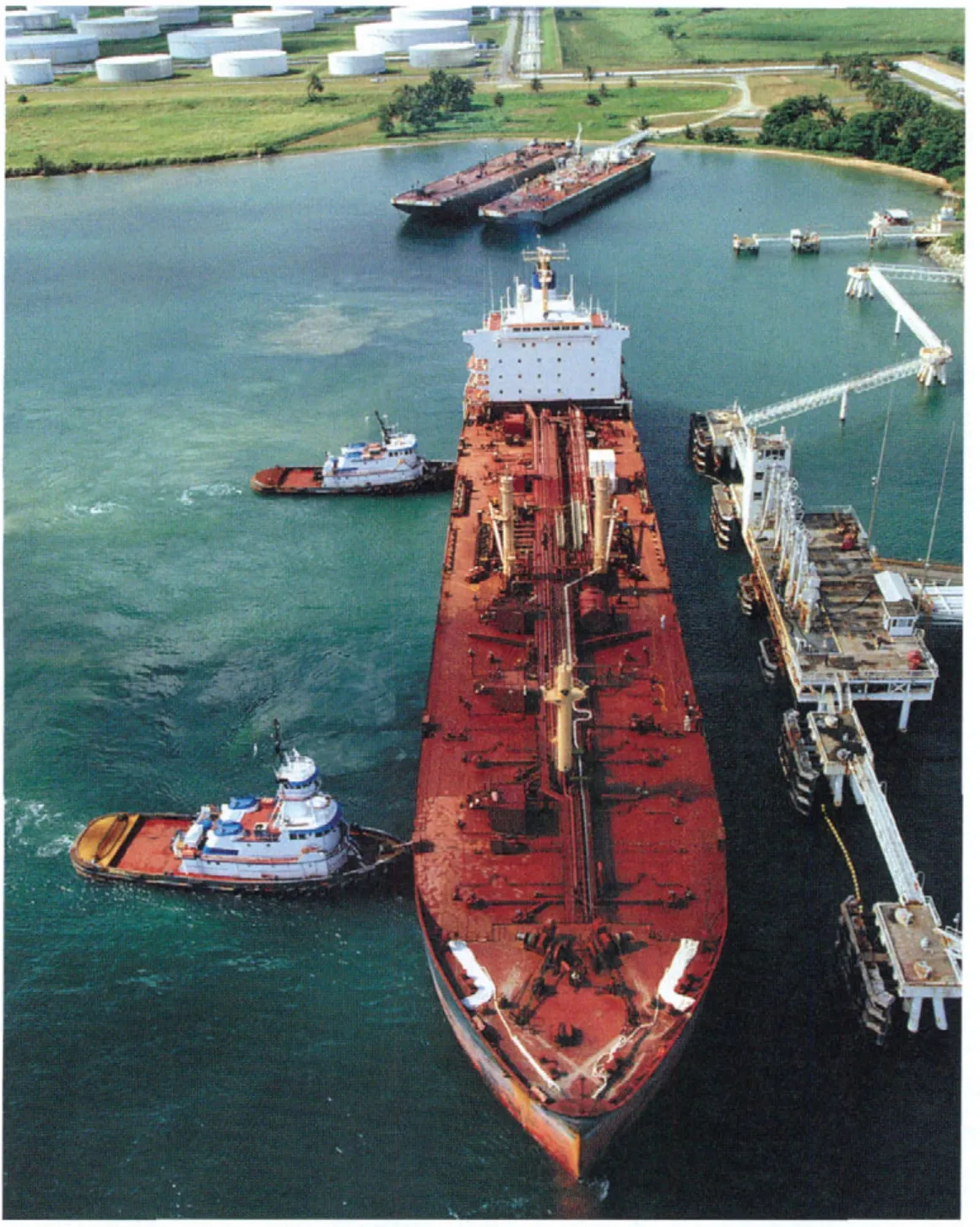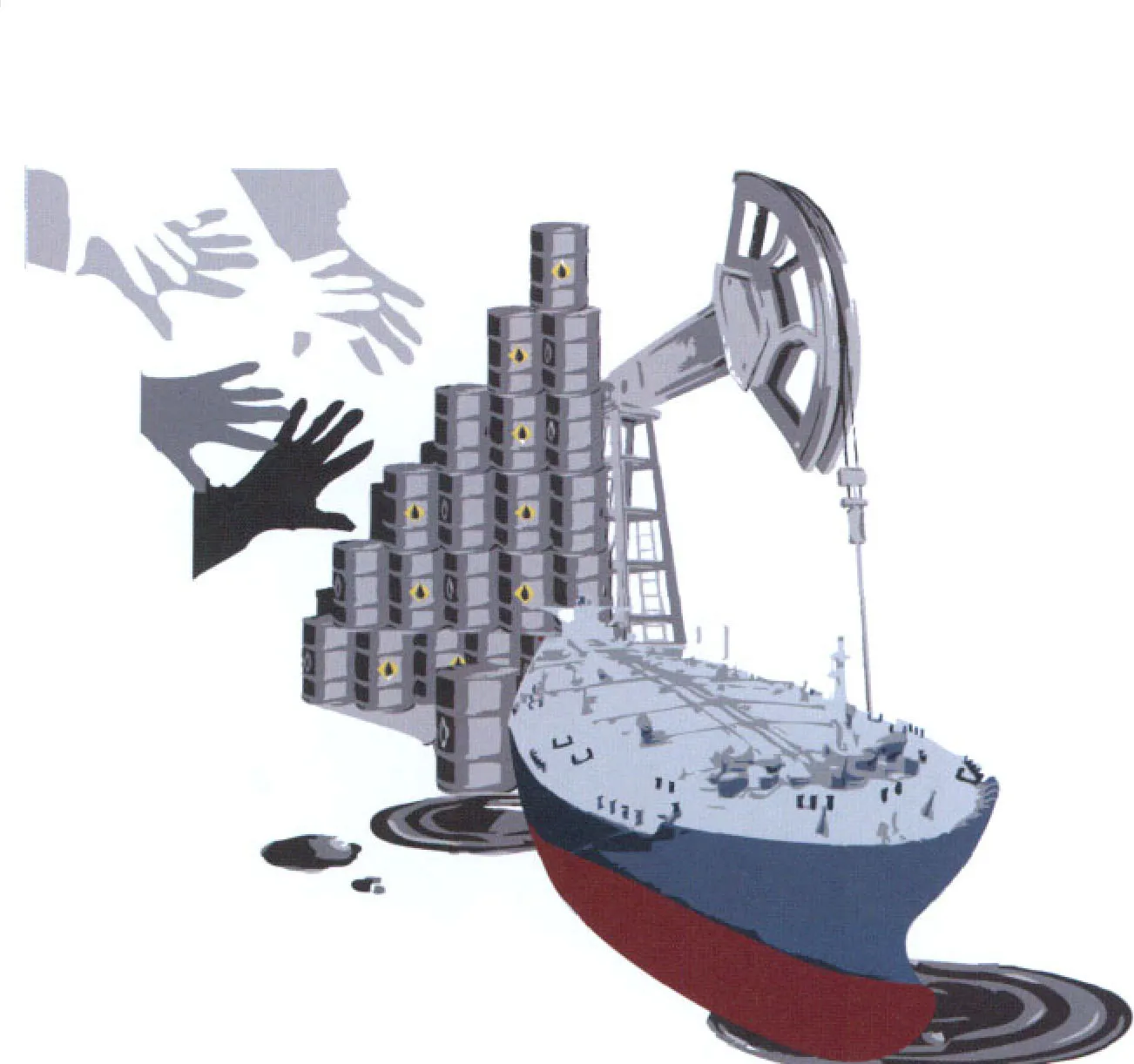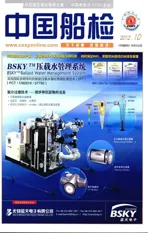油运市场非常道
2012-05-26
本刊记者 邢 丹
油运市场非常道
本刊记者 邢 丹
在国际石油市场上,对于运输权的控制被石油巨头们演绎得炉火纯青。
洛克菲勒的得意门徒基辛格曾指出:“如果你控制了石油,你就控制了所有国家”。石油“黑金”带来的巨大财富犹如诱惑夏娃的禁果,让利益追逐者欲罢不能。作为“黑金”运输的战略要地,国际油轮运输市场早已是狼烟四起,围绕话语权的争夺,高手间你来我往,一招一式,刀光剑影。
石油巨头技高一筹
一直以来,埃克森美孚、BP、壳牌、雪佛龙、道达尔和康菲六大石油巨头都是国际油轮运输市场上当仁不让的主角,这些石油公司不但占有了世界绝大部分石油资源,而且牢牢控制着国际油运现租市场近四分之一的天下。其中,欧洲石油企业在原油运输市场的地位非常重要。荷兰壳牌长期以来一直维持着现租市场最大租家的地位,占市场份额大约7%;英国BP和法国道达尔在2011年的统计数据中分列第三和第七位,市场份额为5%和3%。欧美国家的石油贸易公司在原油运输市场上占有的份额也不容小觑,如美国的雪佛龙、瑞士石油贸易公司Vitol在现租市场的重要性一直在不断上升,2011年其市场份额也占到4%。随着国家石油公司,尤其是“新兴市场经济国家”石油公司的崛起,国际原油运输市场格局已经开始发生改变,如中国石化、中国石油、巴西国家石油公司(Petrobras)等这些由国家主导的企业,在原油运输市场占有比例近些年开始迅速攀升,2011年原油船现租市场上,中国石化旗下联合石化市场占有份额甚至达到7%,超过BP,位居世界第二。
在国际油轮运输市场上,对于运输权的控制被石油巨头们演绎得炉火纯青。尽管石油公司自身租船的比例并不高,甚至更多地交给第三方或石油运输管理公司来运输,但是这些石油巨头以先进技术作为资本,话语权作为推手,成立了石油公司国际海事论坛(OCIMF),如同一个高端俱乐部,牢牢控制着海上运输的管制权。目前,OCIMF已拥有75个成员,每年由世界石油巨头们轮流主持,这些成员已经囊括了世界各大产油地,拥有星罗棋布的油田、炼油厂和油码头,控制着世界上绝大多数的石油开采和贸易,这意味着任何没有经过OCIMF认可的船舶在国际石油运输市场上几乎难以立足。在这里,石油巨头们通过出台并推行油轮的管理和安全标准,以保证其货物在运输过程中的安全,他们最终决定用谁的船,用什么样的船,油轮船东必须满足他们的标准,才可能有资格揽货。
同时,石油巨头通过推行油公司检查,将游戏规则确立为油运企业揽到货的必要条件,一步步引导油运企业“就范”。据了解,油公司检查,主要分成两部分,分别针对船舶和船东。为了实施检查,石油公司均成立了自己的核查或检查机构,该机构仅对本公司负责。检查队伍由具有丰富航海经验的船长和轮机长组成,也有在船舶检验与造船和海事检查方面具有丰富经验的人员参与,经过石油公司规定的培训合格后,承担检查工作。这些检查机构、检查人员的资格,不需要任何其他机关认可,完全是公司自己的事情。石油公司检查要求高,主要表现在受检船舶即使已具有有效的公约证书和入级证书,并经港口国监督检查合格,石油公司仍要对停靠其码头的船舶进行检查,还要求满足石油公司及其行业的要求。应对石油公司检查的难度大,不仅表现在其所要求范围广、标准多,更重要的是,其几近苛刻的检查风格。
油运江湖谋胜之道
占据世界上大部分石油资源的石油巨头凭借技术优势为油运企业设立一道道高门槛,油运企业只有满足甚至更好地满足才能生存,因此处在弱势一方,始终扮演着游戏规则追随者的角色,很少有机会参与规则制定,在变幻莫测的石油市场和油运市场中随波逐流。
据悉,全球各油轮公司及其船舶只有通过了石油公司评审,石油公司才考虑租用。为了让油运企业有章可循,TMSA应运而生,显然,这是国际石油巨头联手对油轮公司的管理标准制定的“门槛”,是油轮公司获得国际石油运输权的准入证,而石油公司就是考官。也就是说,油轮公司获得TMSA的评级,就会被纳入OCIMF成员石油公司的选择范围,进入其数据库的船舶就如同进入了保险箱,特别是在油运市场波谷时期,这些油轮公司就会因为拥有充分的揽货机会,而具有强大的抗风险能力。与此同时,OCIMF为各油轮公司提供了用于评估自身管理体系等级的导则,各油轮公司向OCIMF提交符合报告,并由其会员石油公司确定最终等级,该等级决定油轮公司是否有资格承运OCIMF会员石油公司的货物和运费的高低。能通过更高等级的评定,就意味着油轮公司可以赚取到更高的利润。这些诱惑,尽管让油轮公司丧失了争夺运输权的机会,但是利益上的回报麻痹了绝大部分油轮公司奋起一搏的思想,逆来顺受成为他们的选择,特别是国际航运市场萧条的大背景,很多油运企业将石油公司视为救命稻草。
当然,在这些油轮公司中,也有一些凭借自身实力,置身事外的国家。大连远洋运输公司副总经理李玉平告诉记者,美国和日本是世界上老牌的石油消费大国,他们在保证石油安全方面都下了很大功夫。如日本,最大程度地减少了国际石油公司对它的制约。据了解,早在20年前,日本就将建立自己的船队列为政府项目,由政府提供建立船队的资金,运费也不随市场暴涨暴跌。国家船队基本不参与国际油运,承担本国90%以上的石油运输量,别国很难进入日本油运市场。可以说,日本是“国油国运”政策的典范。他们实行非常有利于本国油轮船队营运的保护政策,在买造船方面给予补贴和低息贷款,对本国商社租用本国船队也给予一定程度的税费减免。据了解,长期以来,日本油轮船队是通过船公司、银行、石油公司、造船厂四方合作而发展起来的。日本船公司要建造油轮,首先要与石油公司签订一项长期合同,然后银行才能提供贷款或融资,有了银行的资金保证,日本船厂才接受油轮建造订单。在这种发展模式下,日本船公司的油轮船队几乎全部以长期期租方式租给石油进口商使用,合同期一般为10~20年。如日本第一大船公司日本邮船(NYK)有近30艘VLCC,其中几乎全部与日本石油公司签订了长期期租合同。同样是石油消费大国,美国与日本的做法截然不同,他没有所谓的“国油国运”,进口石油完全依靠国际油轮市场,但这并不意味着美国忽视石油安全,反而其通过充足的石油储备,以及控制大石油公司,更直接有力地控制着世界石油分配,其强大的海上军事力量,亦是石油运输的有力保障。

失衡中的安全至上
国际油轮运输市场,石油公司一统天下,尽管失衡的话语权让油轮公司只能被动适应,但不可否认,国际油运市场能发展到今天,油轮运输强大的安全保障体系,却也正是依靠石油公司制定的一系列高标准建立起来的。壳牌负责人指出,现在是信息时代,任何一个船公司发生事故都会很快被公众知道,企业兢兢业业历经几十年建立的声誉,很有可能在朝夕之间就毁于一旦,对于像我们这样大的石油公司来讲,决不能有这样的事情发生,也不想与任何出事故的船公司发生联系,更不想有索赔事件发生或对环境造成损害。BP海运公司Andrew Payapan表示认同,认为石油公司应该克服各种困难很好地控制风险,无论是岸上风险还是船上的风险,保证员工在工作环境和操作过程中风险降到最低。现在,BP公司货物运量只有20%是由自己的船在运输,20%是租船承运,剩下的市场交给第三方或油运管理公司,有时候现船租用会占到公司货运量的60%,这就意味着会与很多第三方进行合作。要达到很好地控制风险的目的,必须要有一方具有强有力的主导权,把压力向下传递。石油公司作为卖方,通过与油轮公司签署一些长期协议,可以最直接地将安全管理要求传导给油轮公司,进而在油轮运输过程中很好地控制风险。Andrew Payapan认为,现在BP公司的评估和 TMSA的要求是非常接近的,他们评估的重点包括HSE的表现、实践调查、航海安全等。在过去12个月中,BP公司在全球进行了54次评估,发现了600多个问题,找出这些问题就是油运安全的保障。
尽管石油巨头并没有在“口头”上强制油轮公司实施TMSA,但是世界各地有一定实力的油轮船队都递交了TMSA自评报告。这也是油轮运输天平上石油公司占有主导地位带来的良性循环。可以说,TMSA是国际大石油公司和船舶租赁者的需求,同时也是船舶管理公司的需求。
当然,在国际油轮运输市场上,油轮公司也在千方百计谋求主动,在这种看似不平衡的环境中平衡自身发展的支撑点。目前,在国际油轮市场上,存在两种油轮船队运作方式:一是油公司附属船队,二是独立油轮船东,特别是独立船东已成为油轮市场的主要力量。独立船东的崛起,促进了船队规模的大型化和兼并活动的增多,出现了几家超大型的专业油轮船队,据中国船舶工业经济研究中心研究员刘玮介绍,截止到2012年8月底,全球油轮规模排名前5位的分别是,希腊1.08亿载重吨;日本0.46亿载重吨;中国0.28亿载重吨;挪威0.26亿载重吨;美国0.23亿载重吨。
为了在油轮运输市场上能更好地与石油公司对话,一些大的油轮公司正在逐渐形成合力,建立联合运营体。据悉,已经形成的NAVIG8 POOL,有各种油轮100多艘,其中MR型40艘,HANDY型5艘,LR1型7艘,AFRAMAX型29艘,VLCC5艘,BUNKER型3艘,TECHNICALMANAGEMENT22艘。另外HEIDMAR POOL也有各种船舶100多艘。这些船东正在以一种新的方式与石油公司进行抗衡。
国际油轮运输市场尽管存在着不平衡,但也正因为如此,弱势一方才会想尽办法不断地寻求平衡,这也是市场能恒久“保鲜”的魅力。

Kissinger, Rockefeller's favorite student, has once pointed out that if you control the oil,you will control all the countries. The great wealth brought about by the “black gold” of oil is like the forbidden fruit tempting Eve that makes interest pursuers find it difficult to resist. As the strategic battlefield for “black gold” transport, the international tanker transportation market has become a place fi lled with flames of war where all countries are sparing no effort to fi ght for the power of decision.
Oil Giant Takes an Edge
Exxon Mobil, BP, Shell, Chevron, Total and Conocophillips have always been the unchallengeable leading players in the international tanker transportation market which occupy most of the world’s petroleum resources and firmly control a quarter of international tanker transportation market.Although these oil giants don’t have high charter rate or most of the times even entrust a third party or oil transportation management companies to transport oil, they have established OCIMF taking advantage of their advanced technologies and their decision powers. OCIMF is like a high-end club that takes firm control over the administration power of marine transportation. By far OCIMF has included the major oil producers all over the world as its members, and it has oilf i elds, ref i neries and wharfs scattered all over the world, controlling most of the oil exploitation and trade in the world.Within OCIMF, the oil giants introduce and produce the management and safety standards for tankers to ensure safe transport of their cargo. They have the fi nal say as to whose ships and what type of ships to use and tanker owners have to comply with their standards before being qualif i ed to be carriers.
Secret for Success in Tanker Transportation Market
Using their technical advantages, oil giants owning most of the world's oil resources set one after another threshold for tanker transportation companies so that transportation companies have to meet or exceed their requirements to survive. Parties in a disadvantageous position always play the role of rule followers who rarely have a part in regulation making but have to go along with the stream in the unpredictable oil market and tanker transportation market. It is reported that oil giants only give consideration to tanker companies and ships that have been approved by oil companies. This temptation deprives the tanker companies their opportunity to strive for transportation right, but the beneficial returns also numb most of the tanker companies and they do not revolt and choose to bite the bullet. Especially against the general background of the sluggish international shipping market, many tanker companies see oil companies as the life-saving straw. Of course, there are some tanker companies that are strong enough and are not involved in this. For instance, Japan will make the establishment of its own fl eet as the government project.The government will provide the fund to establish the fl eet and the freight will not fl uctuate with the market. The state fl eet will barely engage in international oil transport but will undertake over 90% of domestic oil transport so that other countries will find it difficult to enter the Japanese tanker market. It can be said that Japan is a typical example of the policy of “domestic oil transported by domestic fl eet”.
Safety-oriented Imbalance
The oil companies govern the international tanker transportation market. Although the imbalanced decision power puts tanker companies in a passive position,it can not be denied that the current achievements of the international tanker market derive from the potent security guarantee system established by a parade of high standards made by oil companies. The oil companies are now working with many third parties.To achieve satisfactory risk control, there must be one party that enjoys powerful and dominant right and pass down the pressure. As the seller, oil companies pass directly the safety management requirements to tanker companies by signing long-term agreements with them and thereby exert good control of risk during the course of transport. In international tanker transportation market,tanker companies are understandably doing their utmost to take an initiative and seek the pillar for balanced development in this apparently imbalanced context. By far there have been a couple of oversized professional fl eets in the international tanker market and large-scale tanker companies are gradually joining hands to set up joint operators. It is reported that the established NAVIG8 POOL has over 100 tankers and HEIDMAR POOL has over 100 tankers of all varieties too. These owners are fi ghting against oil companies with a new approach.
Despite the imbalance in the international tanker transportation market, the disadvantaged are trying their utmost to seek the balance, and it is because of this that makes the charm of the market forever fresh.
Market Motto of Oil Transport
Reporter Xing Dan
